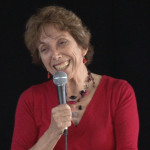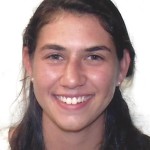My reading
Haftarat Parashat B’haalotkha
Zechariah 2:14- 4:7
2:14 רָנִּ֥י וְשִׂמְחִ֖י בַּת־צִיּ֑וֹן כִּ֧י הִנְנִי־בָ֛א וְשָׁכַנְתִּ֥י בְתוֹכֵ֖ךְ נְאֻם־יְהוָֽה׃
2:15 וְנִלְווּ֩ גוֹיִ֨ם רַבִּ֤ים אֶל־יְהוָה֙ בַּיּ֣וֹם הַה֔וּא וְהָ֥יוּ לִ֖י לְעָ֑ם וְשָׁכַנְתִּ֣י בְתוֹכֵ֔ךְ וְיָדַ֕עַתְּ כִּי־יְהוָ֥ה צְבָא֖וֹת שְׁלָחַ֥נִי אֵלָֽיִךְ׃
2:16 וְנָחַ֨ל יְהוָ֤ה אֶת־יְהוּדָה֙ חֶלְק֔וֹ עַ֖ל אַדְמַ֣ת הַקֹּ֑דֶשׁ וּבָחַ֥ר ע֖וֹד בִּירוּשָׁלִָֽם׃
2:17 הַ֥ס כָּל־בָּשָׂ֖ר מִפְּנֵ֣י יְהוָ֑ה כִּ֥י נֵע֖וֹר מִמְּע֥וֹן קָדְשֽׁוֹ׃
3:1 וַיַּרְאֵ֗נִי אֶת־יְהוֹשֻׁ֙עַ֙ הַכֹּהֵ֣ן הַגָּד֔וֹל עֹמֵ֕ד לִפְנֵ֖י מַלְאַ֣ךְ יְהוָ֑ה וְהַשָּׂטָ֛ן עֹמֵ֥ד עַל־יְמִינ֖וֹ לְשִׂטְנֽוֹ׃
3:2 וַיֹּ֨אמֶר יְהוָ֜ה אֶל־הַשָּׂטָ֗ן יִגְעַ֨ר יְהוָ֤ה בְּךָ֙ הַשָּׂטָ֔ן וְיִגְעַ֤ר יְהוָה֙ בְּךָ֔ הַבֹּחֵ֖ר בִּירֽוּשָׁלִָ֑ם הֲל֧וֹא זֶ֦ה א֖וּד מֻצָּ֥ל מֵאֵֽשׁ׃
3:3 וִיהוֹשֻׁ֕עַ הָיָ֥ה לָבֻ֖שׁ בְּגָדִ֣ים צוֹאִ֑ים וְעֹמֵ֖ד לִפְנֵ֥י הַמַּלְאָֽךְ׃
3:4 וַיַּ֣עַן וַיֹּ֗אמֶר אֶל־הָעֹמְדִ֤ים לְפָנָיו֙ לֵאמֹ֔ר הָסִ֛ירוּ הַבְּגָדִ֥ים הַצֹּאִ֖ים מֵעָלָ֑יו וַיֹּ֣אמֶר אֵלָ֗יו רְאֵ֨ה הֶעֱבַ֤רְתִּי מֵעָלֶ֙יךָ֙ עֲוֹנֶ֔ךָ וְהַלְבֵּ֥שׁ אֹתְךָ֖ מַחֲלָצֽוֹת׃
3:5 וָאֹמַ֕ר יָשִׂ֛ימוּ צָנִ֥יף טָה֖וֹר עַל־רֹאשׁ֑וֹ וַיָּשִׂימוּ֩ הַצָּנִ֨יף הַטָּה֜וֹר עַל־רֹאשׁ֗וֹ וַיַּלְבִּשֻׁ֙הוּ֙ בְּגָדִ֔ים וּמַלְאַ֥ךְ יְהוָ֖ה עֹמֵֽד׃
3:6 וַיָּ֙עַד֙ מַלְאַ֣ךְ יְהוָ֔ה בִּיהוֹשֻׁ֖עַ לֵאמֹֽר׃
3:7 כֹּה־אָמַ֞ר יְהוָ֣ה צְבָא֗וֹת אִם־בִּדְרָכַ֤י תֵּלֵךְ֙ וְאִ֣ם אֶת־מִשְׁמַרְתִּ֣י תִשְׁמֹ֔ר וְגַם־אַתָּה֙ תָּדִ֣ין אֶת־בֵּיתִ֔י וְגַ֖ם תִּשְׁמֹ֣ר אֶת־חֲצֵרָ֑י וְנָתַתִּ֤י לְךָ֙ מַהְלְכִ֔ים בֵּ֥ין הָעֹמְדִ֖ים הָאֵֽלֶּה׃
3:8 שְֽׁמַֽע־נָ֞א יְהוֹשֻׁ֣עַ׀ הַכֹּהֵ֣ן הַגָּד֗וֹל אַתָּה֙ וְרֵעֶ֙יךָ֙ הַיֹּשְׁבִ֣ים לְפָנֶ֔יךָ כִּֽי־אַנְשֵׁ֥י מוֹפֵ֖ת הֵ֑מָּה כִּֽי־הִנְנִ֥י מֵבִ֛יא אֶת־עַבְדִּ֖י צֶֽמַח׃
3:9 כִּ֣י׀ הִנֵּ֣ה הָאֶ֗בֶן אֲשֶׁ֤ר נָתַ֙תִּי֙ לִפְנֵ֣י יְהוֹשֻׁ֔עַ עַל־אֶ֥בֶן אַחַ֖ת שִׁבְעָ֣ה עֵינָ֑יִם הִנְנִ֧י מְפַתֵּ֣חַ פִּתֻּחָ֗הּ נְאֻם֙ יְהוָ֣ה צְבָא֔וֹת וּמַשְׁתִּ֛י אֶת־עֲוֹ֥ן הָאָֽרֶץ־הַהִ֖יא בְּי֥וֹם אֶחָֽד׃
3:10 בַּיּ֣וֹם הַה֗וּא נְאֻם֙ יְהוָ֣ה צְבָא֔וֹת תִּקְרְא֖וּ אִ֣ישׁ לְרֵעֵ֑הוּ אֶל־תַּ֥חַת גֶּ֖פֶן וְאֶל־תַּ֥חַת תְּאֵנָֽה׃
4:1 וַיָּ֕שָׁב הַמַּלְאָ֖ךְ הַדֹּבֵ֣ר בִּ֑י וַיְעִירֵ֕נִי כְּאִ֖ישׁ אֲשֶׁר־יֵע֥וֹר מִשְּׁנָתֽוֹ׃
4:2 וַיֹּ֣אמֶר אֵלַ֔י מָ֥ה אַתָּ֖ה רֹאֶ֑ה ויאמר [וָאֹמַ֡ר] רָאִ֣יתִי׀ וְהִנֵּ֣ה מְנוֹרַת֩ זָהָ֨ב כֻּלָּ֜הּ וְגֻלָּ֣הּ עַל־רֹאשָׁ֗הּ וְשִׁבְעָ֤ה נֵרֹתֶ֙יהָ֙ עָלֶ֔יהָ שִׁבְעָ֤ה וְשִׁבְעָה֙ מֽוּצָק֔וֹת לַנֵּר֖וֹת אֲשֶׁ֥ר עַל־רֹאשָֽׁהּ׃
4:3 וּשְׁנַ֥יִם זֵיתִ֖ים עָלֶ֑יהָ אֶחָד֙ מִימִ֣ין הַגֻּלָּ֔ה וְאֶחָ֖ד עַל־שְׂמֹאלָֽהּ׃
4:4 וָאַ֙עַן֙ וָֽאֹמַ֔ר אֶל־הַמַּלְאָ֛ךְ הַדֹּבֵ֥ר בִּ֖י לֵאמֹ֑ר מָה־אֵ֖לֶּה אֲדֹנִֽי׃
4:5 וַ֠יַּעַן הַמַּלְאָ֞ךְ הַדֹּבֵ֥ר בִּי֙ וַיֹּ֣אמֶר אֵלַ֔י הֲל֥וֹא יָדַ֖עְתָּ מָה־הֵ֣מָּה אֵ֑לֶּה וָאֹמַ֖ר לֹ֥א אֲדֹנִֽי׃
4:6 וַיַּ֜עַן וַיֹּ֤אמֶר אֵלַי֙ לֵאמֹ֔ר זֶ֚ה דְּבַר־יְהוָ֔ה אֶל־זְרֻבָּבֶ֖ל לֵאמֹ֑ר לֹ֤א בְחַ֙יִל֙ וְלֹ֣א בְכֹ֔חַ כִּ֣י אִם־בְּרוּחִ֔י אָמַ֖ר יְהוָ֥ה צְבָאֽוֹת׃
4:7 מִֽי־אַתָּ֧ה הַֽר־הַגָּד֛וֹל לִפְנֵ֥י זְרֻבָּבֶ֖ל לְמִישֹׁ֑ר וְהוֹצִיא֙ אֶת־הָאֶ֣בֶן הָרֹאשָׁ֔ה תְּשֻׁא֕וֹת חֵ֥ן חֵ֖ן לָֽהּ׃










